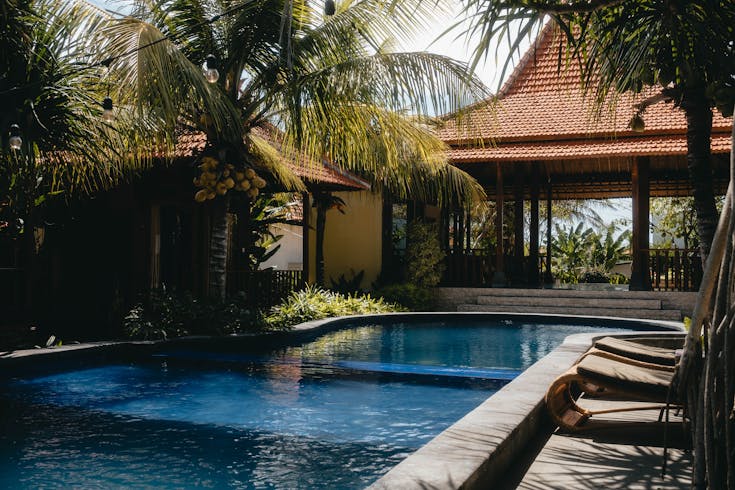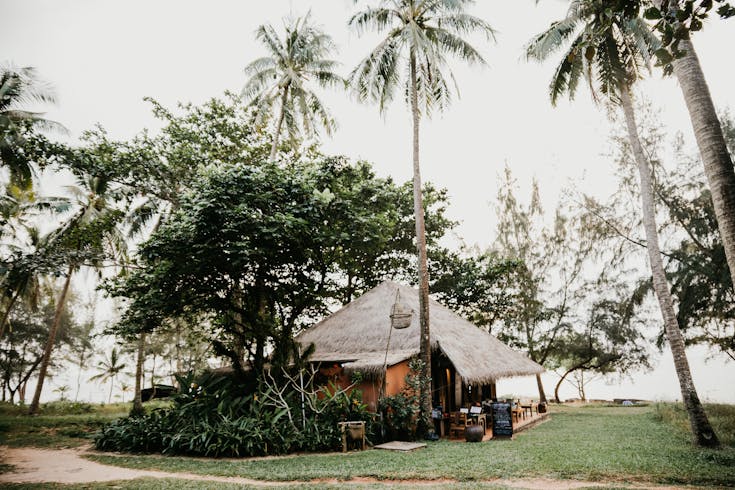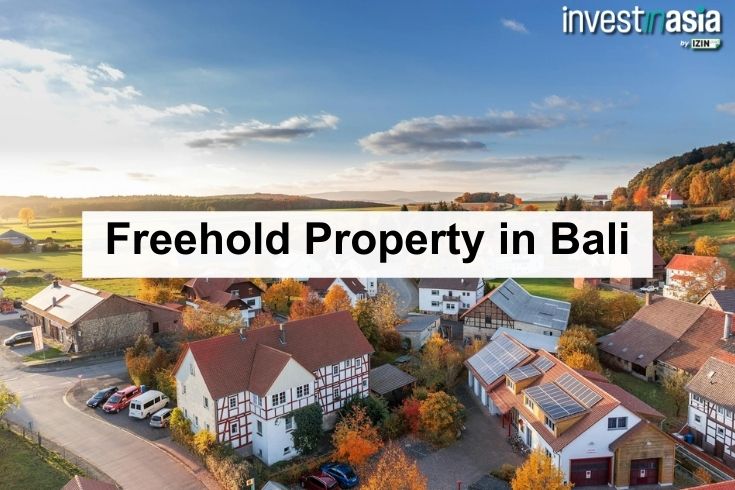If you’re exploring the real estate landscape in Bali, you’ve likely encountered terms like “freehold property” and “leasehold property.” Understanding the nuances of these terms is crucial, especially if you’re considering purchasing property in this tropical paradise. In this comprehensive guide, we’ll delve into the concept of freehold property in Bali, covering everything from its definition to the process of acquisition and its pros and cons.
Also read: Bali Property Market: 2024 Outlook and Insights
What is a Freehold Title in Bali?


A freehold title represents the pinnacle of property ownership, granting the holder absolute and indefinite ownership rights over the property. In Bali, a freehold title, also known as “Hak Milik,” signifies ownership free from any leasehold restrictions. It allows the owner to sell, lease, mortgage, or pass on the property to heirs without any temporal constraints.
In the Indonesian context, the closest equivalent to freehold is the “Hak Milik” or “Right to Own” title. Reserved exclusively for Indonesian citizens, Hak Milik offers perpetual ownership with no expiry date. It holds paramount importance in the realm of property ownership, serving as collateral for bank loans and providing a sense of security to landowners.
Also read: Land Zoning in Bali: Guide for Property Investment
Understanding Hak Pakai or Right of Use Title
For foreigners seeking to invest in Bali’s real estate market, the “Hak Pakai” or “Right of Use” title presents a viable alternative to freehold ownership. This title, akin to the Hak Milik for Indonesian citizens, offers an avenue for non-Indonesians to possess land under certain conditions.
Foreigners with valid residential permits, such as KITAS or KITAP, can acquire a Hak Pakai title. This title is typically granted for a term of 30 years, extendable upon payment of a nominal fee. However, there are restrictions regarding land size and usage, with the property needing to have a legitimate building and meeting specific criteria.
Also read: Mistakes When Buying Property in Bali: 9 Things to Avoid
Pros and Cons of a Freehold Title in Bali
In weighing the decision to opt for a freehold title, it’s essential to consider its advantages and drawbacks.
Pros:
- Indefinite ownership
- Flexibility to sell, lease, or mortgage
- High ownership security
- Potential for long-term value appreciation
Cons:
- Premium price compared to leasehold
- Limited accessibility for foreigners
- Legal complexity for foreign ownership
- Potential for higher maintenance costs
Also read: Freehold vs Leasehold Property in Bali: What’s The Differences?
Types of Freehold Properties in Bali


Buying a Freehold Villa
Whether it’s a resale villa or a newly constructed one, purchasing a freehold villa in Bali requires due diligence. Buyers should scrutinize the build quality and ascertain the seller’s motivations. Engaging a professional builder for inspection can help identify any structural defects and ensure a sound investment.
Buying Freehold Land
For those inclined towards custom-built homes, buying freehold land provides the canvas for realizing their vision. However, buyers must navigate zoning regulations and ascertain the suitability of the land for their intended purposes. Consulting with real estate experts can provide invaluable insights into the intricacies of land acquisition in Bali.
Cost of Buying a Freehold Property in Bali in 2024
The cost of freehold land in Bali varies depending on factors such as location, size, and amenities. While prime areas like Canggu command premium prices, more affordable options can be found in outlying regions. Buyers should conduct thorough market research to identify favorable investment opportunities within their budgetary constraints.
Best Areas to Buy a Freehold Property in Bali
- Canggu: Known for its vibrant atmosphere and trendy lifestyle, Canggu offers a diverse range of freehold properties, from beachfront villas to stylish apartments. With its thriving expat community and abundance of amenities, Canggu is a prime location for both investment and residential living.
- The Bukit: Situated on Bali’s southern peninsula, The Bukit boasts stunning coastal views and world-class surf breaks. This area presents opportunities for acquiring freehold properties at relatively lower prices compared to other popular areas. With its burgeoning development and growing infrastructure, The Bukit is an emerging hotspot for savvy investors.
- Ubud: Renowned as Bali’s cultural heartland, Ubud enchants visitors with its lush landscapes and serene ambiance. Freehold properties in Ubud offer tranquil retreats amidst rice fields and tropical forests, ideal for those seeking a peaceful lifestyle. With its thriving arts scene and wellness offerings, Ubud appeals to both nature lovers and culture enthusiasts alike.
Also read: The 9 Best Area for Property Investment in Bali
Can Foreigners Buy Freehold Property in Bali?
Foreigners can acquire freehold property in Bali, but solely through a foreign-owned PT PMA. This company structure grants ownership rights, typically valid for 30 years and extendable up to 80 years. HGB-titled land is purchased via PT PMA, allowing future conversion to freehold upon sale to an Indonesian citizen.
Also read: Can Foreigners Buy Property in Bali? (2024 Complete Guide)
How to Buy a Freehold Property in Indonesia?
To buy freehold property in Indonesia, registering a PT PMA is the safest route. This grants legal permission for land acquisition and development. The company must hold a real estate business license, ensuring compliance with regulations. The PT PMA can own buildings on Hak Milik land, with its name registered on the land certificate.
Establishing a PT PMA in Bali entails numerous requirements and processes. To simplify the PMA registration and accelerate the property acquisition process in Bali, you can rely on InvestinAsia’s service. We offer PMA Registration Services for Property Acquisition in Bali. Our team of professionals will guide you through the entire process, ensuring that no requirement is overlooked and that the registration proceeds seamlessly.
Reach out to our team now for a FREE consultation and take advantage of our exclusive offer!
In conclusion, understanding the nuances of freehold property ownership is paramount for anyone considering investment in Bali’s real estate market. By familiarizing yourself with the intricacies of freehold titles, Hak Pakai, and other relevant concepts, you can make informed decisions and navigate the property landscape with confidence.
FAQs about Freehold Property in Bali
What does a freehold property mean in Bali?
A freehold property in Bali signifies indefinite ownership without leasehold restrictions, offering the highest level of ownership security.
Can foreigners own freehold in Bali?
While direct freehold ownership is generally restricted to Indonesian citizens, foreigners can obtain ownership rights through legal structures such as PT PMA.
Can foreigners own freehold apartments in Bali?
Foreigners can own freehold apartments and offices in Bali, but not the land beneath them. This option is popular for its convenience, especially with the rise of stylish apartment blocks in sought-after areas like Berawa and Sanur. Apartment ownership offers hassle-free maintenance compared to villas, making it appealing for investors seeking ease.
What are the primary choices for foreigners aiming to invest in Bali’s real estate market?
Leasehold properties and establishing a PT PMA are the primary options for foreigners seeking to invest in Bali’s real estate market.
Also read: PT PMA vs Non-PT PMA: Buying Property in Bali Compared
What are the key differences between freehold and leasehold properties?
Freehold properties offer indefinite ownership, while leasehold properties have specific lease terms. Freehold properties provide greater ownership security but come at a higher price compared to leasehold properties.




